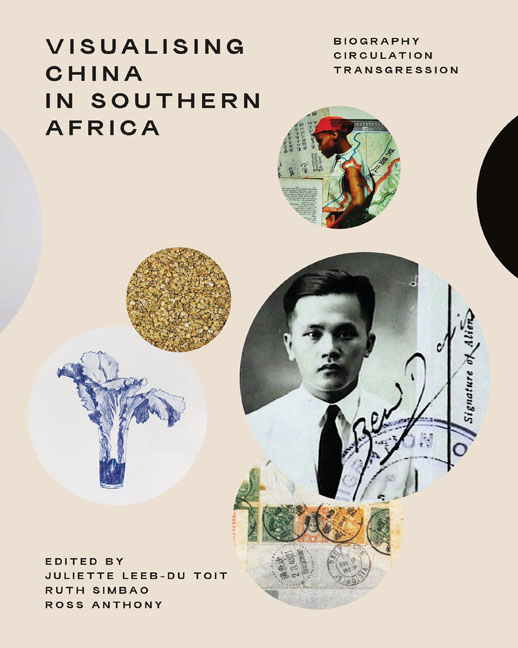9 - Tech Transfer: Marcus Neustetter’s China in Africa Corpus
Published online by Cambridge University Press: 24 November 2023
Summary
In a wide-ranging, two-hour conversation, South African artist Marcus Neustetter and Zimbabwean art historian Gemma Rodrigues discuss Neustetter's ongoing engagement with his experiences of China's presence in South Africa. The conversation took place on 3 May 2018, over Skype. Their dialogue is followed by a short, interpretative essay by Rodrigues, which distils and theorises the main themes of their conversation and offers an art historian's perspective on Neustetter's work.
At the time of their conversation, Neustetter was in Dakar, Senegal, preparing to mount a new installation for a project with the independent art and multimedia centre Kër Thiossane. Rodrigues was in Funchal, Portugal, where she worked as an independent curator and served as a research fellow at the Madeira Interactive Technologies Institute. Neustetter is a post-medium artist, who frequently deploys new technologies and innovative forms of community partnership in his practice. Rodrigues's interest is in cross-cultural interactions in art and in history, and the interfaces between art, technology and politics in Africa and beyond.
A transcript of the conversation, which has been shortened and edited for clarity, offers readers an opportunity to consider Neustetter's oeuvre largely from the point of view of its creator – a valuable counterpoint to more typical forms of art-writing, which approach artworks from the perspective of the viewer. As such, the conversation presents a set of ideas, coming directly from the artist, about his creative process, technical choices, sources of imagery, goals and motivations. More specifically, Neustetter's commentary offers fresh insight into techne, that is, the particular details of an artist's practical methods or know-how, which reflect the kinds of knowledge based in making and doing that usually remain unspoken (Whitehead 2012, 48–51). By making ordinarily tacit, procedural knowledge available for scrutiny and interpretation, our hope is that the dialogue proves a valuable resource for scholars, students and artists alike. Focused solely on work that explores China's deepening presence in South Africa, the dialogue also offers insight into the particular artistic and technical strategies Neustetter has developed to broach questions of difference in the context of an African continent that is increasingly ‘looking East’. The circulation of stereotyped representations of otherness, the experiential dynamics of cross-cultural encounters, and newly hybrid visions of materiality and socio-economic power are all key themes in Neustetter's China in Africa corpus.
- Type
- Chapter
- Information
- Visualising China in Southern AfricaBiography, Circulation, Transgression, pp. 188 - 211Publisher: Wits University PressPrint publication year: 2023



